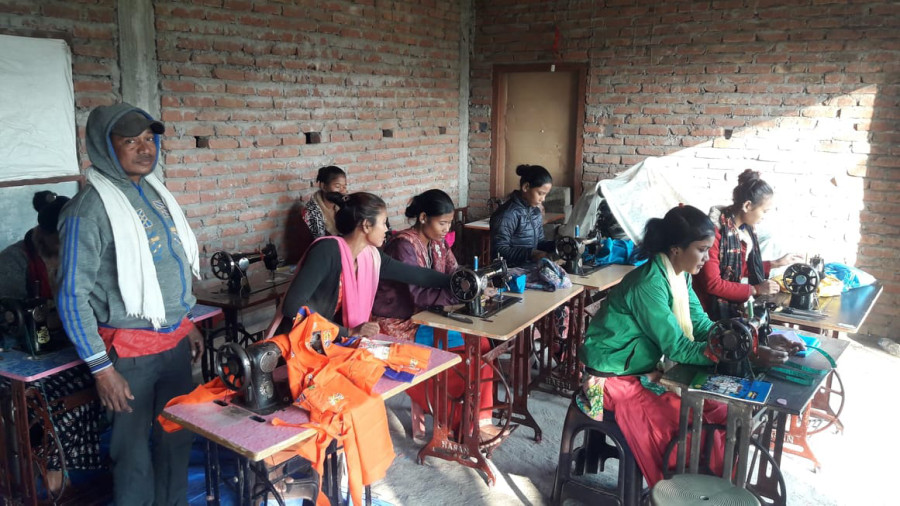Sudurpaschim Province
Skill-based training fails to generate desired results in Tikapur
Tikapur municipality provides training to target groups, but lack of monitoring, among other factors, mars its output.
Ganesh Chaudhary
In the fiscal year 2017/18, Tikapur Municipality Ward No. 6 invested Rs 215,000 and provided seamstress training to 60 women. The training's objective was to encourage these women to start their own business. None of them did.
The ward office also provided motorcycle maintenance training to 13 youths. Only two of the trainees are currently employed, according to the ward office.
Bali Ram, the ward chairman, said that his office continues to support the local youths despite the dismal results.
"We have allocated Rs95,000 for the purchase of motorcycle repair equipment in the current fiscal year. We continue to support our youths who want to learn income-generating skills."
The ward office also provided Dhakiya weaving training to freed Kamlaris (indentured girl labourers), but the target group too could not put the skill to use.
"We have conducted various skill development trainings to empower women and impoverished communities, but such trainings have not brought the desired results," said Ram.
Since the trainings have not generated expected results, the municipal office could discontinue its training programmes from the next fiscal year.
"We plan to conduct such trainings only if they reflect productivity in the future," Ram said.
In the last fiscal year, Tikapur Municipality allocated around Rs 7.1 million to conduct skill development trainings. A separate income-generating training was also organised with the budget separated under Janajati, women, and Dalit headings.
Questioning the effectiveness of the trainings run by the local governments, Kedar Bhattarai, a lecturer at Tikapur Multiple Campus, said, that a lack of monitoring mechanism has marred the effectiveness of these training programmes.
"We have studied the works performed by the municipality and found that the skill development training programmes have not shown any noticeable effect so far," Bhattarai said. "This could be because the local government does not have any monitoring mechanism to keep track of the trainees after they have learned the required skills to start their own businesses."
Ramlal Dagaura, the chairman of Tikapur Municipality Ward No.7, accepts that they have not been able to get the desired output from the training programmes.
"Every year, the ward office allocates around Rs 400,000 for income-generating training programmes. But, very few trainees start their own business," he said. "There must be something amiss either in the training we provide or in the execution of the skills learnt."
The situation of neighbouring Janaki Rural Municipality is also similar. In the last fiscal year, the rural municipality allocated Rs 400,000 to conduct vehicle driving training.
But the rural municipality has no clue whether the trainees put the driving skill to work.
"The municipal office had contracted a driving centre to train locals. We don't know what the trainees are doing after they learned to drive," said Hiralal Chaudhary, chief at Social Section of the rural municipality.




 15.12°C Kathmandu
15.12°C Kathmandu.jpg)















